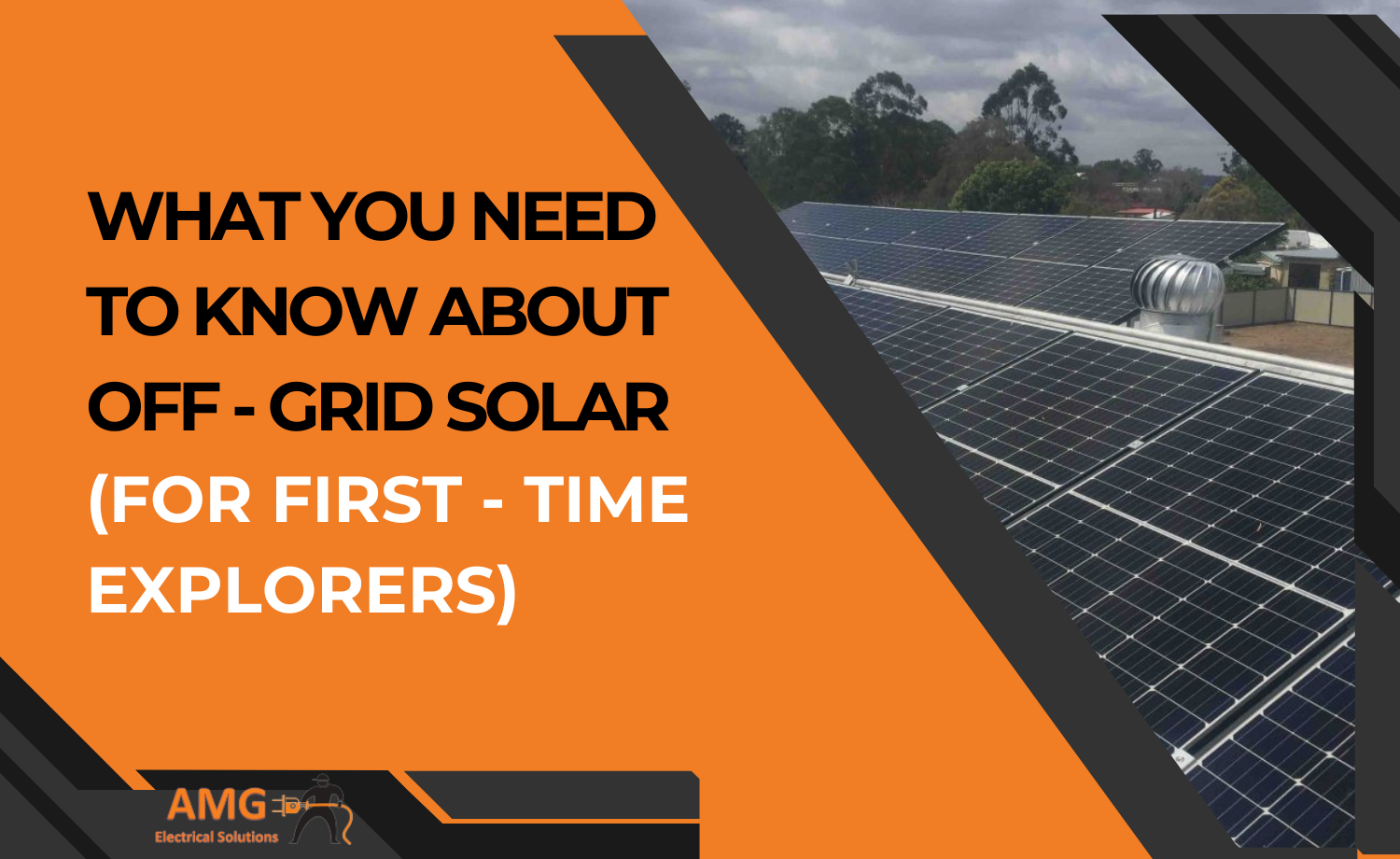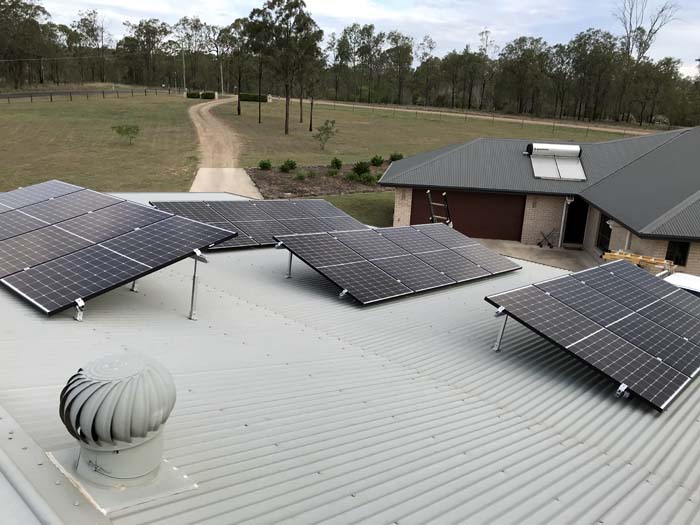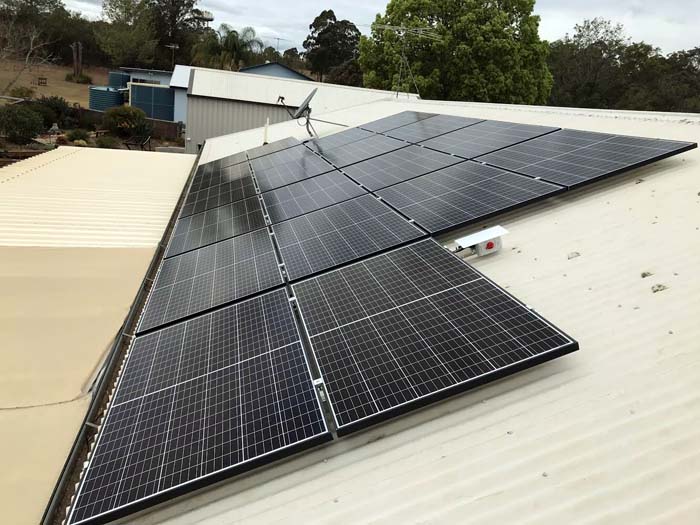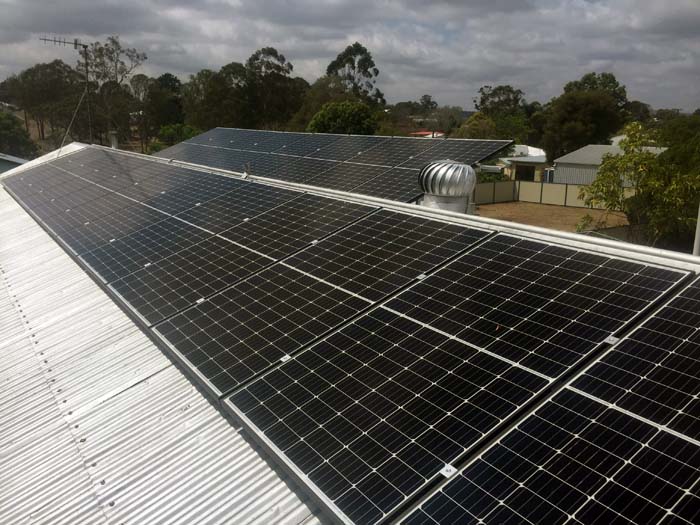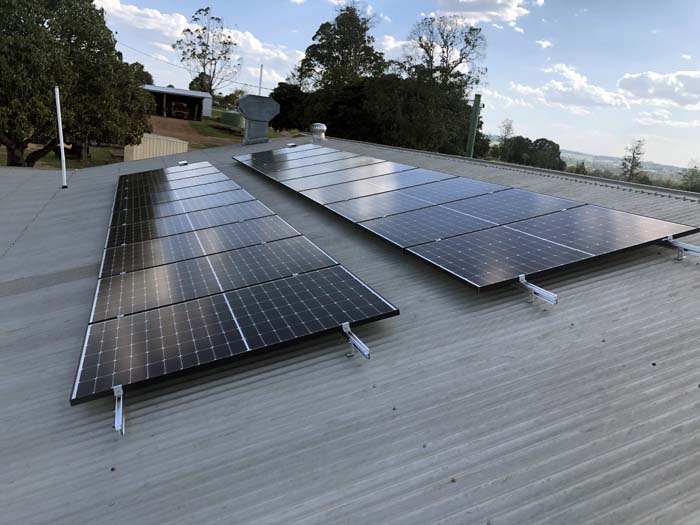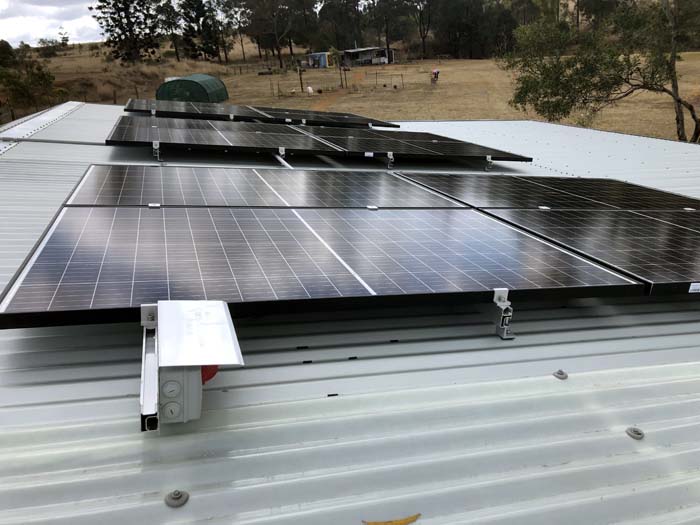Are you looking into powering your property and go off the grid? Off-grid solar systems offer an exciting opportunity for energy independence and sustainable living, especially in remote areas or for those seeking the unplugged lifestyle. If you are considering venturing into the world of off-grid solar, here are some essential things you need to know:
1. Understand the Basics:
Off-grid solar systems consist of solar panels that capture sunlight and convert it into electricity. The power is then stored in batteries to provide electricity during times when the sun isn’t shining. A charge controller regulates the flow of energy to the batteries, while an inverter converts the stored direct current (DC) electricity into alternating current (AC) for your household or property use.
2. Assess Your Energy Needs:
Before diving into an off-grid solar setup, it’s crucial to assess your energy requirements. Consider your household’s daily electricity consumption, the types of tools/appliances you’ll use, and any additional power needs like water pumps or heating systems. Properly sising your system ensures you have enough electricity to meet your needs without wasting resources. We can help with this!
3. Battery Storage Matters:
Batteries play a critical role in off-grid solar systems. They store excess energy generated during sunny periods for use during cloudy days or nighttime. Choosing the right battery capacity and technology is vital to ensure your system’s reliability and efficiency.

4. Location Matters:
The amount of sunlight your location receives is a crucial factor in off-grid solar systems’ effectiveness. Regions like ours with abundant sunshine are ideal for maximising solar energy production. However, advancements in solar technology and energy storage have made off-grid solar viable under most conditions.
5. Energy Efficiency Is Key:
To make the most of your off-grid solar setup, embrace energy-efficient practices. Use LED lighting, energy-efficient appliances, and smart energy management to optimise power consumption and extend your battery life.
6. Backup Options:
Though off-grid solar systems are designed to be self-sufficient, it’s prudent to have a backup plan during extended periods of low sunlight or high energy demands. Consider having a backup generator fuelled by biodiesel or other renewable sources for added security.
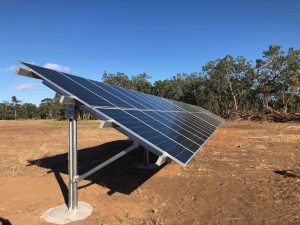
7. Initial Investment:
While off-grid solar systems provide long-term savings on energy bills, they do require an initial investment. The costs include solar panels, batteries, inverters, and other system components. However, government incentives, tax credits, and the prospect of future savings can make the investment more manageable.
8. Maintenance and Monitoring:
Off-grid solar systems need regular maintenance to ensure optimal performance. Regularly inspect and clean solar panels, check battery health, and monitor energy production to identify any issues promptly.
9. Seek Professional Advice:
Building an off-grid solar system is a significant undertaking. Consulting with renewable energy experts and solar installers can help you design the right system for your needs, ensuring a successful and sustainable solar journey.
Setting up off-grid solar is a great investment for the future and with careful planning, proper system sising, and a commitment to efficiency, you can use the power of the sun to create a stronger and more reliable future for yourself, your family and your property.
Give us a call to find out what type of system/setup would work nest for you 🙂

